AMETEK SPECIALTY METAL PRODUCTS - Advanced Metallurgical Products for Critical Applications.
United States
Manufacturer/ Producer

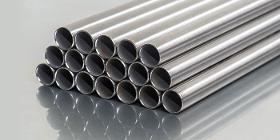
AMETEK SPECIALTY METAL PRODUCTS
United States
The high precision seamless tubes manufactured at Fine Tubes begin their journey as seamless tube extrusions, in a range of different sizes. This material is reduced in size several times until it gradually reaches the exact specifications our customers require. Each time we perform a reduction process, the tube needs to be cut, cleaned and heat treated before the next one can commence. Please note that we have a minimum order value of £10,000.
Request for a quote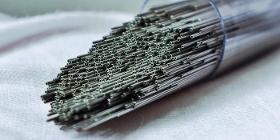
AMETEK SPECIALTY METAL PRODUCTS
United States
Welded and redrawn tube manufacturing employs elements of both the welded and seamless processes. A welded and redrawn tube is welded in a conventional manner but then transferred to our seamless mill, located in the same factory. Here the product is redrawn to achieve a welded and redrawn finish. The objective of redrawing is to achieve homogenisation of the weld following annealing by cold working. This refines the structure of the weld resulting in improvements that include: Better corrosion resistance Improved fatigue life Higher mechanical integrity Please note that we have a minimum order value of £10,000.
Request for a quote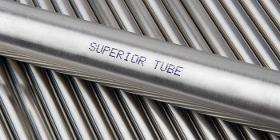
AMETEK SPECIALTY METAL PRODUCTS
United States
The welding process is one of the core ways in which we manufacture precision tubes. Our high-quality tubing starts off as a flat strip of metal. The strip is formed into a tube through a series of rollers and the join, also called the seam, is then welded together. Welded Processes Special non-destructive testing methods – including eddy current, ultrasonic and pressure testing - are used to ensure a consistent weld. Just like with seamless manufacturing, welded tubes can be drawn down by plug drawing or sinking. This method can be used to create very long lengths of coiled tube, these can also be measured during coiling using a laser measurement. The main welded tube manufacturing processes used are strip welding and cold drawing, but other important processes in between, or at the end of the drawing process, include Please note that we have a minimum order value of £10,000.
Request for a quote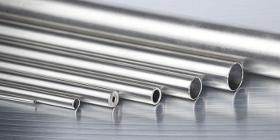
AMETEK SPECIALTY METAL PRODUCTS
United States
Because of its strength, unique density and corrosion resistance, titanium has found applications in many industries. For high quality tubing products, it’s often a better substance to use than competing materials like stainless steels or super alloys. Titanium tubes are light weight and exceptionally corrosion and heat resistantThe density of titanium is about 60 per cent of that of steel- or nickel-based alloys giving significant weight savings in aerospace structures. The tensile strength is better than that of austenitic or ferritic stainless steels. Titanium is exceptionally corrosion resistant and exceeds the resistance of stainless steels in most environments. The metal is non-magnetic too, and has good heat transfer properties, with a melting point higher than steel alloys. Titanium is easily worked. Please note that we have a minimum order value of £10,000.
Request for a quote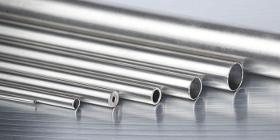
AMETEK SPECIALTY METAL PRODUCTS
United States
Commercially Pure (CP) titanium is an unalloyed titanium grade with a close-packed hexagonal (CPH) crystal structure at room temperature known as alpha phase structure. It has good formability, weldability, ductility, and corrosion resistance combined with moderate strength. Grade 2 titanium has slightly increased higher mechanical properties when compared to Grade 1. It is used principally in aerospace, automotive, chemical plants, marine environments, architecture structures & medical applications. Please note that we have a minimum order value of £10,000.
Request for a quote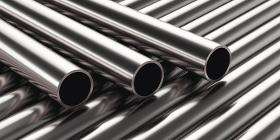
AMETEK SPECIALTY METAL PRODUCTS
United States
Ti 3AI/2.5V (Titanium Grade 9) alloy is a near alpha, alpha-beta alloy, sometimes referred to as “half-6-4.” It offers 20 to 50% higher tensile strength than the commercially pure titanium at room and elevated temperatures. It is much more amenable to cold working than Ti 6AI/4V alloy and can be cold worked 75 to 85% to result in moderately high strength and good ductility. Furthermore, it is weldable as the commercially pure grades and has excellent resistance to torsion and corrosion.Ti 6Al/4V is significantly stronger than commercially pure titanium while having the same stiffness and thermal properties excluding thermal conductivity, which is about 60% lower in Grade 5 Ti than in CP Ti. Amongst its many advantages, it is heat treatable. Please note that we have a minimum order value of £10,000.
Request for a quote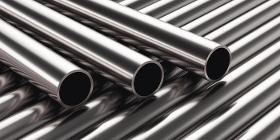
AMETEK SPECIALTY METAL PRODUCTS
United States
Ti 6Al/4V (Titanium Grade 5) is the most widely used of all the alpha-beta titanium alloys accounting for more than 50% of total titanium usuage. It is typically used in the annealed condition, at service temperatures through 400°C (750°F). Ti 6Al/4V is welded with matching or with ELI filler wire. Ti 6Al/4V is significantly stronger than commercially pure titanium while having the same stiffness and thermal properties excluding thermal conductivity, which is about 60% lower in Grade 5 Ti than in CP Ti. Amongst its many advantages, it is heat treatable. This grade is an excellent combination of strength, corrosion resistance, weld and fabricability. In consequence, its uses are numerous such as for military aircraft or turbines. It is also used in surgical implants. Generally, it is used in applications up to 400°C to improve ductility and toughness in cold-worked condition. Please note that we have a minimum order value of £10,000.
Request for a quote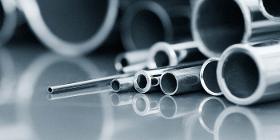
AMETEK SPECIALTY METAL PRODUCTS
United States
Alloys 304 (S30400) and 304L (S30403) stainless steels are variations of the 18 percent chromium – 8 percent nickel austenitic alloy, the most familiar and most frequently used alloy in the stainless steel family. High strength, excellent corrosion resistance and minimized carbon content make Alloy 304 and 304L Stainless Steels useful for applications where welding is required. Uses include architectural mouldings and trim, welded components of chemical, textile, paper, pharmaceutical and chemical industry processing equipment. Other advantages are its resistance to oxidation, excellent formability, ease of fabrication and cleaning, excellent strength to weight ratio and good toughness at cryogenic temperatures. For severely corrosive environments,the lower content of Type 304L is preferred because of its greater immunity to intergranular corrosion. Please note that we have a minimum order value of £10,000.
Request for a quote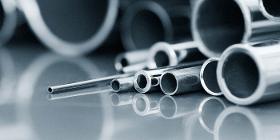
AMETEK SPECIALTY METAL PRODUCTS
United States
Grade 316 is the standard molybdenum-bearing grade, second inoverall volume production to 304 amongst the austenitic stainless steels. The molybdenum gives 316 better overall corrosion resistant properties than Grade 304, particularly higher resistance to pitting and crevice corrosion in chloride environments. Grade 316L, the low carbon version of 316 and has very high immunity from sensitization (grain boundary carbide precipitation). It is extensivly used in the oil and gas and chemical industries for its cost effective corrosion resistance and ease of fabrication. There is commonly no appreciable price difference between 316 and 316L stainless steel. The austenitic structure also gives these grades excellent toughness, even down to cryogenic temperatures. Compared to chromium-nickel austenitic stainless steels, 316L stainless steel offers higher creep, stress to rupture and tensile strength at elevated temperatures. Please note that we have a minimum order value of £10,000.
Request for a quote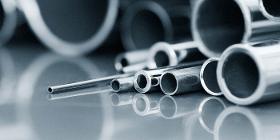
AMETEK SPECIALTY METAL PRODUCTS
United States
316Ti (UNS S31635) is a titanium stabilised version of 316 molybdenum-bearing austenitic stainless steel. The 316 alloys are more resistant to general corrosion and pitting/crevice corrosion than the conventional chromium-nickel austenitic stainless steels such as 304. They also offer higher creep, stress-rupture and tensile strength at elevated temperature. High carbon Alloy 316 stainless steel can be susceptible to sensitisation, the formation of grain boundary chromium carbides at temperatures between approximately 900 and 1500°F (425 to 815°C) which can result in intergranular corrosion. Resistance to sensitisation is achieved in Alloy 316Ti with titanium additions to stabilise the structure against chromium carbide precipitation, which is the source of sensitisation. This stabilisation is achieved by an intermediate temperature heat treatment, during which the titanium reacts with carbon to form titanium carbides. Please note that we have a minimum order value of £10,000.
Request for a quoteManufacturer/ Producer
3900 Germantown Pike
19426 Collegeville - United States
europages also recommends
A selection of companies related to the activity:
A selection of products that might interest you
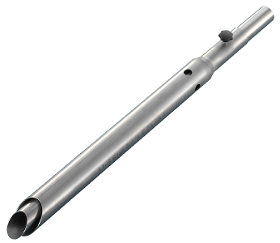
HS UMFORMTECHNIK GMBH
Germany
Suction lances / suction tubes can be delivered in different diameters right from stock. We also can manufacture according to your drawing and/or sketch or sample. material: stainless steel AISI 304 or aluminium AlMgSi 0.5 F22 in all common tube dimension 40.0 / 50.0 and 60.3 mm right from stock special versions can be realised at short notice and for short delivery
Request for a quote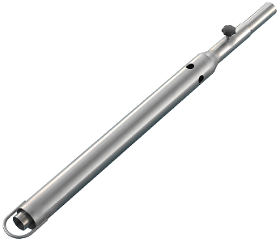
HS UMFORMTECHNIK GMBH
Germany
Suction lances / suction tubes can be delivered in different diameters right from stock. We also can manufacture according to your drawing and/or sketch or sample. material: stainless steel AISI 304 or aluminium AlMgSi 0.5 F22 in all common tube dimension 40.0 / 50.0 and 60.3 mm right from stock special versions can be realised at short notice and for short delivery
Request for a quote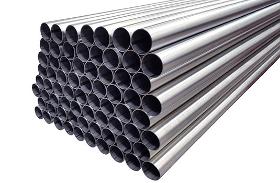
HS UMFORMTECHNIK GMBH
Germany
Our stainless steel pipes offer the following characteristics: pipe ends deburred quantity delivered in accordance with customer’s specifications well and protective transport packed
Request for a quote
HS UMFORMTECHNIK GMBH
Germany
In pneumatic conveying systems, conveying abrasive products – in particular at high conveying speeds – leads to abrasion and thus to wear in the pipe bends. In order to prevent this, the pipe bend of our highly wear-resistant DWR double-skin stainless pipe bends is encased in a second pipe bend, which creates a double-walled chamber. This acts, so to speak, as a “protective shield”: After the wear has taken place on the internal pipe bend, it fills with the product to be conveyed. When this process is completed, you are then conveying „product on product“ – and no further wear is possible! Version I: „Product-on-product” In this variant, the classic “double skin” comes into effect. not suitable for foodstuffs not suitable for material change Version II: „Lined with concrete” lined with extremely hard concrete colour: light grey not suitable for foodstuffs also available: lined with borosilicate glass
Request for a quoteRequest for quotes
Create one request and get multiple quotes form verified suppliers.
- Only relevant suppliers
- Data privacy compliant
- 100% free



